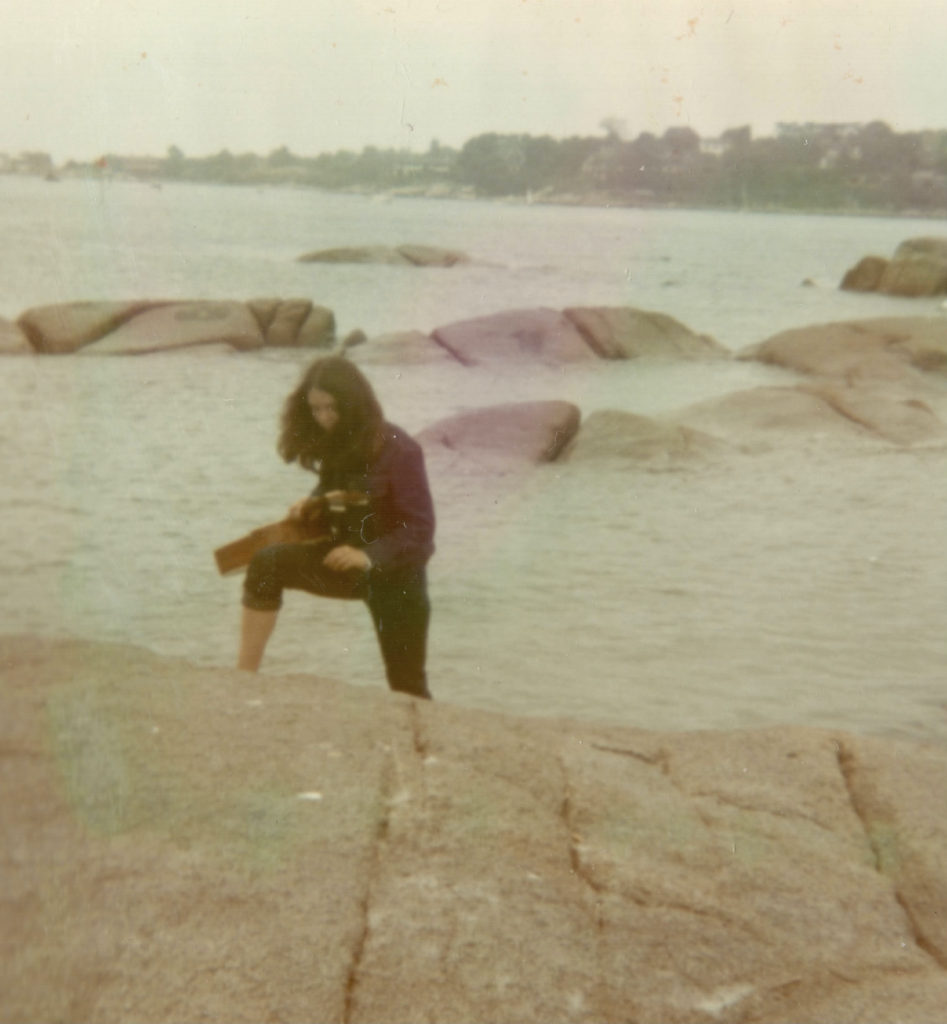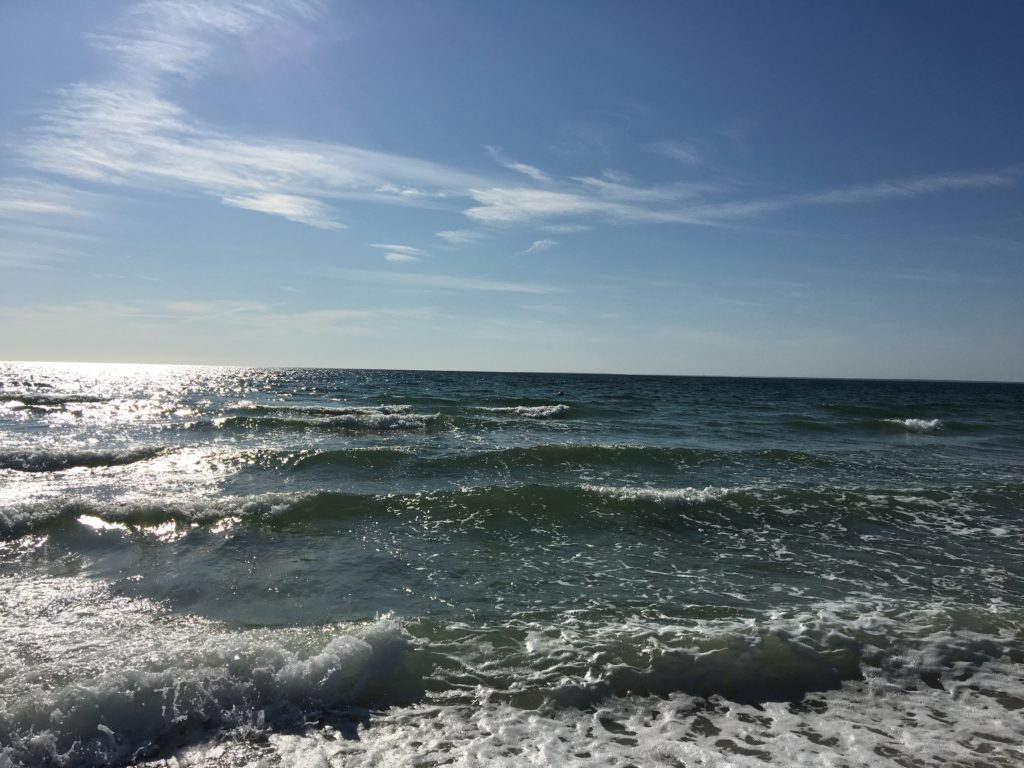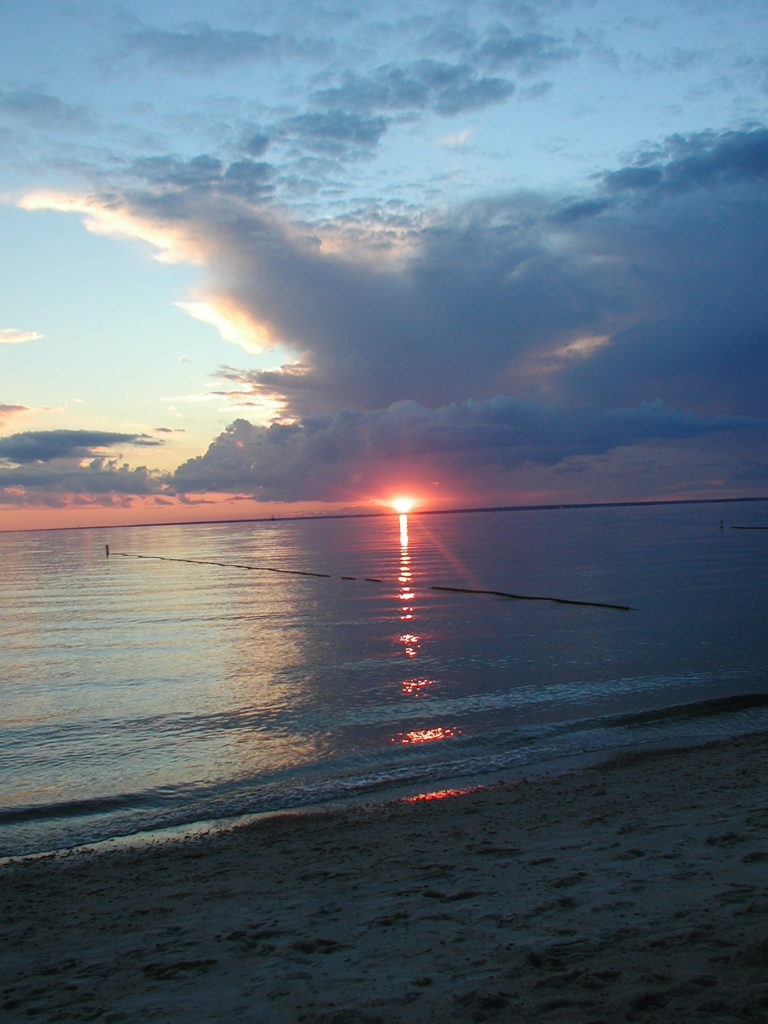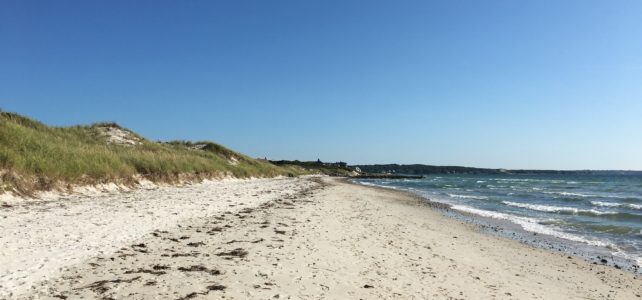I long to be near the ocean. It stole my heart on our first encounter. A teenager, I was camping with my family through Massachusetts, the birthplace of my mother’s parents. She wanted to see where her family roots had been before they were pulled up and transplanted to Ohio.
My grandmother Becky lived with us and was my first introduction to Massachusetts. Bits of New England accent colored her speech until she died. I loved hearing her say “mirrah,” “drawah,” or “idear” and asked questions requiring an answer that included words ending in “er” or “ah” just to hear her say them.
Growing up in southwestern Massachusetts, she hadn’t lived by the sea, but earlier generations had, arriving on the northeastern shore before the Revolutionary War, joining the battles at Concord and Lexington. In my young mind, the east coast was a magical place, and photos of the Kennedys sailing or walking the beach on Cape Cod just added to the mystique.

So I was thrilled when, one summer, our family contingent wended its way through western Massachusetts to Boston and places further north along the coast. It didn’t disappoint. From the moment I stepped over large rocks and experienced the presence of the ocean, I was smitten. “Why,” I wondered, “would anyone move from such a place to the Midwest?” They must have had their reasons, but at the moment, for the life of me, I couldn’t imagine what they might have been.
Over the years, I’ve made numerous trips up east and spent countless hours walking beaches on the Cape as well as up and down the coast. The pandemic put an end to a long string of birthday celebrations shared with my youngest daughter on a beach. How I miss walking the thin strip that’s neither ocean nor land but water and sand swirling together in some “both/and” space. Looking for sea glass. Listening to the rhythmic sounds of the water’s ebb and flow. Watching shore birds. Drawing in deep draughts of salty air that cleans and soothes lungs irritated by pollen and pollution at home.
A friend who appreciated my soul-ache for the sea sent me a book: The Outermost House: A Year of Life on the Great Beach of Cape Cod, by Henry Beston. I finished it last week. First published in 1928, it chronicles Beston’s year-long stay in a two-room cottage he had built on his dune-land property just south of the Eastham Life Saving Station on what is now called Coast Guard Beach.

Though not a trained scientist, he was a keen observer of nature, calling himself a “writer-naturalist.” In his book, Beston meticulously describes the sights, sounds, wildlife, weather, and events from walks along the beach to shipwrecks in a foaming sea, to the bravery of the coast guards from the Nauset lighthouse who patrolled the beach, ready to help anyone in need, to deliver a letter, or to stop in Beston’s cottage to warm up with a steaming cup of coffee.
From the first pages, I was hooked. Beston was a writer first, and as Robert Finch notes in the 1988 introduction, Beston “… preferred poetic impressions to scientific accuracy.” Perhaps that’s why I could close my eyes and “be there,” hearing the distinctive sounds made by waves in their various stages: the “great spilling crash” when they arrived, the “wild seething cataract roar” as the wave dissolved, “the rush of its foaming waters up the beach,” and the “foam-bubble hissing” as the wave dissolves and slides back toward the sea.
His description of the origin of waves was equally transporting. It’s not scientific, but who isn’t enchanted by thinking of the birth of waves somewhere far out in the middle of the ocean when “… the pulse beat of earth liberates a vibration, an ocean wave.” “Pulse beat of earth” reminds me of the captivating phrase, “heartbeat tones,” NASA used to describe the simple signals sent from Perseverance during its landing on Mars when more complicated communication was impossible—it just let them know “Percy” was “alive” and functioning.
The ancient values of dignity, beauty, and poetry which sustain it are of Nature’s inspiration; the are born of the mystery and beauty of the world.
Henry Beston, The Outermost House
Beston didn’t include as many personal reflections as some authors do when writing memoir. Many of his detailed descriptions stand alone, allowing the reader to experience the ocean in their own way and to reflect on deeper meanings stirred by the literary encounter.
I am no exception.
He responded directly to friends wondering if he didn’t grow tired or “haunted” by the constant sound of the ocean’s roar, saying simply that he had “grown unconscious” of it, noticing only when he first woke or climbed into bed at night. Or made a conscious choice to stop and listen. Or “when some change in the nature of the sound breaks through my acceptance of it to my curiosity.”
I could imagine that. And it made me wonder what sounds or sights in my life are so constant that I don’t often notice them. What miracles do I take for granted every day? What can help me remember to “stop again to listen,” or to lift my heart to God in gratitude for the gift?
Beston commented that birds in flight look completely different than birds at rest and suggested that after observing birds on the ground, we clap our hands and send them flying. Again, his provocative prose had me wondering. What people, places, or activities make me feel more alive, more myself? What pulls from me the gifts that makes me more who I am made to be?
In describing mystic/poet Robert Lax, his biographer, Michael McGregor, said that Lax would encourage people to find a place where grace flowed and put themselves there often. Flight is what birds are made for. It’s where observers see them in their magnificence. Where is the place Grace flows most naturally for me? Can I put myself there? Often?
Again, responding to friends’ questions, Beston shared what he had learned of Nature from his Cape Cod year: “… one’s first appreciation is a sense that the creation is still going on, that the creative forces are as great and as active to-day as they ever have been … Creation is here and now.”

When I read those words, I slipped into quiet and wonder at the evolution of creation, of creatures, of humanity, of faith, of God. What does it mean that creation is ongoing, here and now? How comfortable am I with the lack of permanence and the transformation that is Incarnation?
I am longing for the sea. Its pull is always on my heart. Yet, with Beston’s book, I feel that in some way I have been there. And received Grace as if I had walked the thin space of earth/sea in my bare feet, wondered at the birds, breathed salty air, and huddled against the wind.
